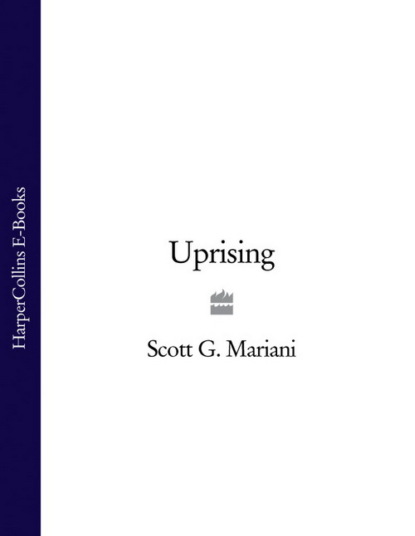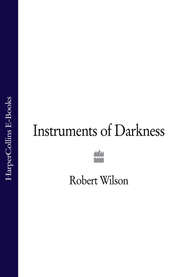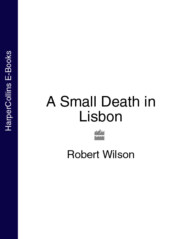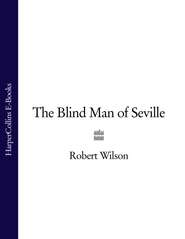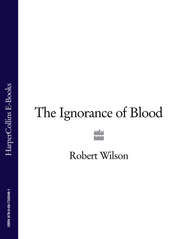По всем вопросам обращайтесь на: info@litportal.ru
(©) 2003-2024.
✖
A Darkening Stain
Автор
Год написания книги
2019
Настройки чтения
Размер шрифта
Высота строк
Поля
‘I’d feel impoverished.’
She kissed me.
‘You’re all right, really,’ she said, patting my face, running her hand through my hair again, stroking the old dog.
‘Am I?’
‘And anyway, Mum’s not coming for the climate or the cuisine or the people. She’s coming to see us.’
‘Us?’
‘That’s you and me, Bruce. The loving couple.’
‘She doesn’t know me.’
‘I know this may sound strange, but she wants to. She wants to get to know you.’
‘Why would she want to do a thing like that?’ I asked, suddenly feeling myself on the brink of something, not the yawning black ravine but something bigger than me, like a view that goes on for ever to some distant mountains.
‘I’m pregnant.’
4 (#ulink_20802f60-2260-5a33-897c-496262b095ca)
Saturday 20th July, Cotonou.
It rained in the night, louder and longer than Buddy Rich could have ever coaxed out of his snare. I stared at the slice of window reflected on the wall, at the water rippling shadows down the pane. I listened to Heike sleeping, felt the warmth of her hip on my thigh, her ribs feathering my flank. Happiness crept into my chest and curled up there tight as a ball of kitten. But no sooner was it there than I felt this terrible despair at ever being able to hang on to it. Happiness was a moment rather than a state.
I fainted into sleep without realizing it. I thought I was still staring at the rain running, running down the wall to nowhere, but somehow I’d got up and was looking down at myself. My shadow blocked the slice of window. A terrible darkness fell so that I no longer knew whether I was the one standing or lying, no longer knew if I’d been happy even for a moment.
I left for work in the morning – disturbed. Part of me was flinging myself around like a ballerina born to it but the rest, the bigger part, was weighed down, burdened by some unknown foresight. I drove and let yesterday crash over me, haul me down to its root, and roll me around in the airless, noisome turbulence.
Five men dead, schoolgirls disappearing off the streets of Cotonou, Le Commandant Bondougou, Carlo, Gio and Franconelli. What Bagado didn’t know, something that had come my way by accident in that ugly business at the beginning of March when Franconelli set his terrible example, was that Bondougou, the Cotonou Chief of Police, was a Franconelli man. Bondougou covered up all the murders, and there were a number, from that horrific night and not a peep was heard in any of the media. That knowledge sat on my chest like a 300 lb bench press that I’d been foolish enough to think I could lift.
For me to find Carlo and Gio waiting in my office after Bagado had implied that he wouldn’t mind seeing Bondougou end up as the main dish in a shark fest was a cruel irony. Me help Bagado sideline Bondougou? If miracles came my way and I found myself well placed to nudge him into the feeding frenzy I could only see myself going straight in after him.
I parked up at the office, tweaked the gardien awake and sent him across to the Caravelle café for coffee and croissants. The tailor’s shack opposite my office was coming alive into the grey, sodden morning with the aid of the usual North Korean folk music from the radio. I wasn’t talking to those guys. I’d asked them to make me a pair of trousers out of the last two metres of super-lightweight cotton I could find in Cotonou and they’d ballsed it up and left themselves no extra to adjust. Still, there were always spare boys around to run errands for me, do a bit of following and such, so I didn’t dress the boss down too much for botching my trews.
The office stank of beer. I opened the windows and went out on to the balcony with my phone book and flicked through to the number of the biggest shipping agents in Cotonou. I put a call in to my friend Appollinaire Agossa, a young dude type who listened out for me.
‘Polly? It’s me, Bruce.’
‘No need to introduce yourself, M. Bru, you’re the only man I know who calls me Polly.’
‘Am I? My privilege. Do you know a guy called Jean-Luc Marnier?’
‘No.’
‘Can you find out for me? He runs an import/export company called La Côte Oueste. Looks like a crook, too.’
‘They’re all crooks. How long have I got?’
‘Ages. Ten minutes?’
I hung up. The gardien came in with the best thing of the morning and I gave him a tip to go and buy his bouille, the wet sugary bird food they like to eat for breakfast. I gave him some extra to go and find a girl to clean the office up properly too. I drank coffee and fluffed eating the croissant badly so it was all over me when Polly called back.
‘That was quick,’ I said.
‘Only because we’ve been working the ship for Marnier’s company, loading cotton seed.’
‘The Kluezbork II?’
‘You’ve heard?’
‘I was on it yesterday afternoon.’
‘They think the crew did it and they were going to throw them to the sharks when they got out to sea.’
‘That’s not logical, Polly.’
‘That’s the rumour.’
Bagado’s machine working already.
‘You got anything sensible or interesting on Marnier?’
‘He imports veg oil in drums and bottles it here in Cotonou to sell locally. He exports cotton seed and fibre. Somebody said he’s done cashew but I don’t remember the name La Côte Oueste. I’ve heard he does business out of Lomé and Abidjan too. That’s it.’
‘Well, that all sounds very legal to me.’
‘He doesn’t have to be a crook.’
‘The people I know he’s dealing with say he does,’ I said. ‘Anyway, thanks. When’s your birthday?’
‘You missed it.’
‘I’ll make it up to you, Polly.’
‘Don’t call me Polly, that’ll do.’
‘You’re lucky you’re not pretty.’
‘That’s not what the girls say in the New York, New York club.’
‘It’s dark in the New York, New York, and you’re black.’
‘Au revoir, M. Bru.’
I got in the car in a sweat from the coffee and headed east to cross the lagoon to Akpakpa and the industrial zone where Marnier’s company had their offices, about four kilometres out on the Porto Novo road. Bagado’s car was sitting beside a large puddle near the Ancien Pont, and there was a big crowd streaming down the bank to one side of the bridge. I parked up and went with the flow. I knew it was bad because some wailing had started up towards the front and people were crowding on the bridge looking down at the water’s edge, the Catholics among them crossing themselves.





